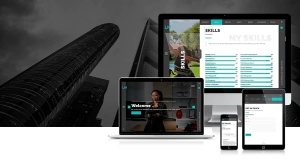Career Advice

Table of Contents
CV & Cover Letter Writing
A great CV and cover letter are critical tools for job seekers as they provide an opportunity to showcase your qualifications, skills, and experience to potential employers. A well-written CV and cover letter help you stand out among other applicants and increase your chances of being selected for an interview.
A great CV should be clear, concise, and easy to read, highlighting your most relevant qualifications and experience. It should also be tailored to the specific job you are applying for, highlighting how your skills and experience align with the requirements of the role. A well-structured CV will also give a good first impression and show you take your job search seriously.
A cover letter is an opportunity to introduce yourself, express your interest in the role, and explain how your skills and experience make you a good fit for the job. A great cover letter should be tailored to the specific job and company you are applying for, highlighting how your qualifications and experience align with the requirements of the role. It should also be well-written, free of errors, and professional in tone.
In short, a great CV and cover letter are essential for making a positive first impression and demonstrating to potential employers that you are the best candidate for the job.
Both the CV and Cover Letter play a critical role in the job application process as they provide employers with their first impression of a candidate. A well-written and professionally presented CV and Cover Letter can help to set a candidate apart from others and increase their chances of getting an interview and ultimately being offered the job.

Career Branding
Career branding is the process of creating and promoting a professional image and reputation for oneself in the job market. It involves developing a personal brand that highlights your unique skills, qualifications, and experiences, and communicating that brand to potential employers, colleagues, and industry contacts. A strong career brand can help you stand out in a crowded job market, build credibility and trust with potential employers, and ultimately land the job you want. It may include a professional website, online presence, networking, and showcasing your skills and achievements.
Career branding is the process of creating a unique and powerful image for yourself in the job market, highlighting your skills, experiences, and value proposition. It is important for job seekers to understand career branding because it can help them to stand out from other candidates and increase their visibility to potential employers. A strong career brand can also help to create a positive impression and increase the chances of being offered a job.
There are several key elements to building a strong career brand. These include:
- Understanding your unique value proposition: What makes you different from other candidates? What are your unique skills and experiences?
- Creating a personal brand statement: A personal brand statement is a brief summary of who you are and what you can offer to potential employers.
- Building a professional online presence: This includes creating a professional LinkedIn profile, having a well-designed personal website or portfolio, and actively engaging in professional networks and social media.
- Networking: Building relationships with people in your industry can help to in-crease your visibility and open up new opportunities.
- Continuously learning and growing: Stay current in your field by taking courses, attending industry events, and reading relevant publications.
In summary, career branding is an essential part of job search preparation, it helps job seekers to stand out from other candidates, increase their visibility to potential employers, and create a positive impression. Job seekers should take the time to understand their unique value proposition, create a personal brand statement, build a professional online presence, network and continuously learn and grow.

Job Search
Job search preparation is the process of getting ready for a job search by researching job opportunities, identifying your qualifications, and creating a resume, cover letter, and portfolio. It can also include networking and preparing for interviews. The key to effective job search preparation is to be organized and strategic in your approach.
- Research job opportunities: Research job opportunities and industries to identify where your skills and qualifications align. Look for job postings and job boards and join professional organizations in your field.
- Identify your qualifications: Review your qualifications and experiences and consider how they align with the job opportunities you are researching. Identify your strengths and accomplishments and highlight them in your resume, cover letter, and portfolio.
- Create a resume, cover letter and portfolio: Create a clear, concise, and compelling resume, cover letter, and portfolio that showcases your qualifications and experiences. Tailor each document to the specific job you are applying for.
- Network: Network with professionals in your field and attend industry events. This is an opportunity to meet new people, learn about new job openings and learn about the industry.
- Prepare for interviews: Prepare for interviews by researching the company and the position and practicing your interviewing skills.
- Follow up: Follow up with employers after an interview to thank them for their time and to express your continued interest in the position.
Overall, the importance of job search preparation lies in the fact that it allows you to make the most of job opportunities and increase your chances of landing the job. By being prepared and presenting a well-crafted resume and cover letter, you are more likely to be invited to an interview and to be offered a job.

Tips and Advice
Career development and advancement is a continual process that includes setting career goals, enhancing skills, seeking mentorship, and understanding industry trends and opportunities. The path to career success is often filled with challenges and decisions, but with the right strategies and guidance, you can navigate your career journey effectively.
- Set Career Goals: Outline your short-term and long-term career goals and create a roadmap to achieve them. Consider your interests, values, and skills, and align them with potential career paths and positions.
- Enhance Your Skills: Identify the skills and competencies required for your desired career advancement and invest in continuous learning, training, and development to meet those demands.
- Seek Mentorship: Find a mentor or career coach who can provide guidance, insights, and support tailored to your specific career objectives.
- Understand Industry Trends: Stay informed about the latest trends, technologies, and developments in your industry. Subscribe to industry publications, join professional organizations, and engage in relevant online communities.
- Build a Strong Network: Connect with colleagues, industry leaders, and peers through networking events, social media, and professional organizations.
- Adapt to change: The career landscape is ever-evolving. Stay agile and adaptable, embracing changes and challenges as opportunities for growth.
Overall, the essence of career tips and advice is to empower professionals to navigate their career paths with confidence and purpose. By embracing continuous learning, fostering meaningful relationships, and remaining adaptable, you set the foundation for a fulfilling and successful career.
















